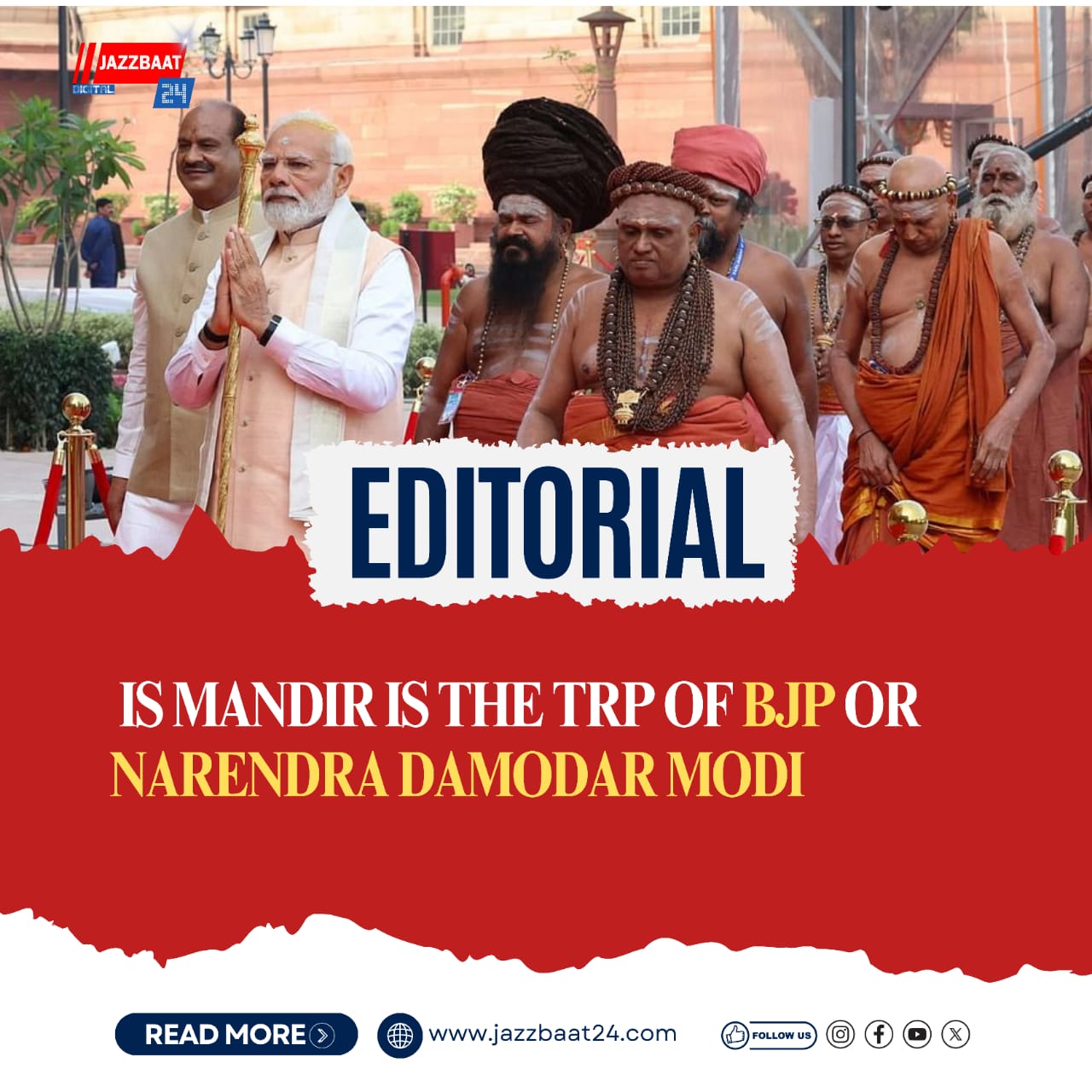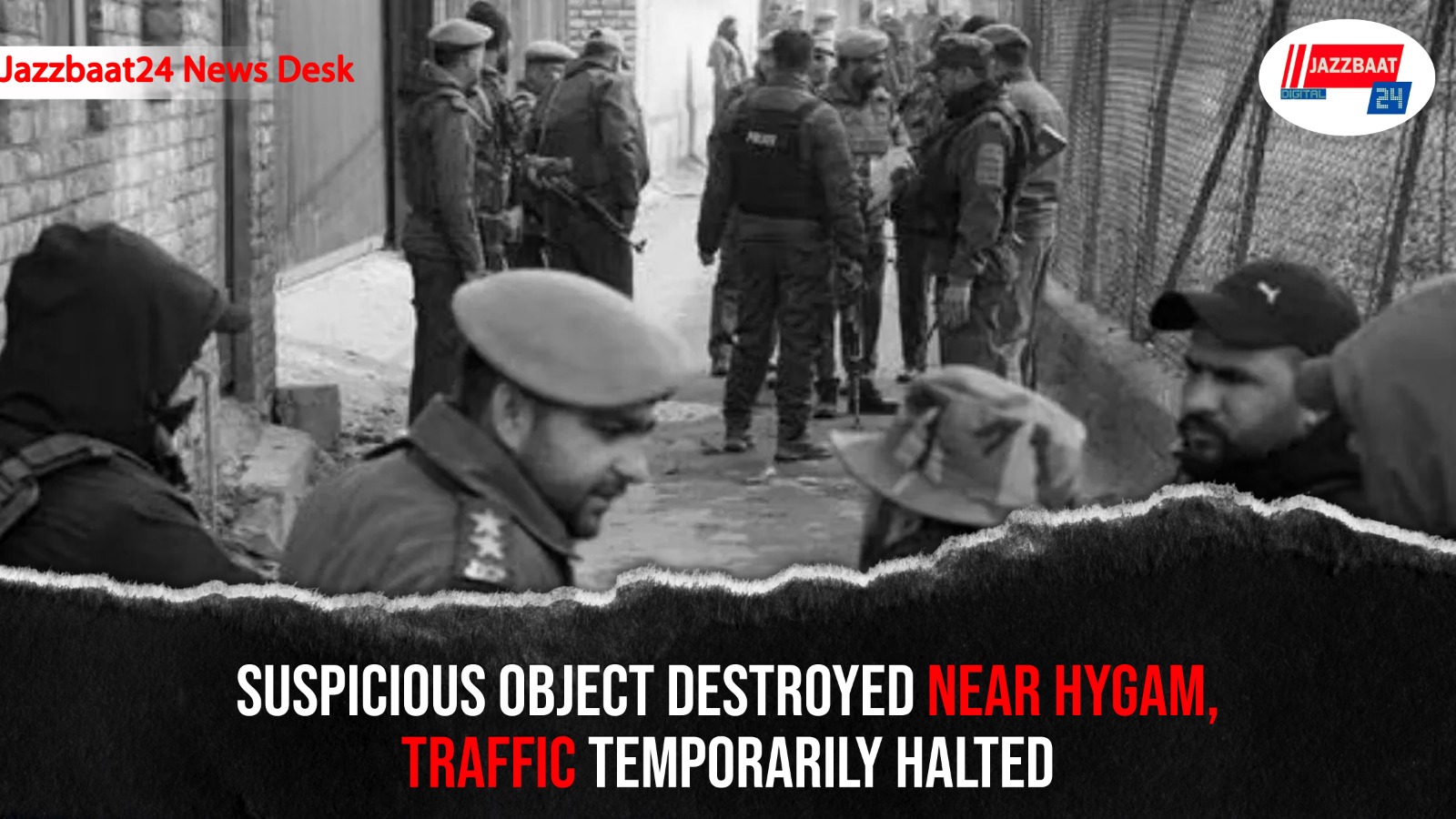IS MANDIR IS THE TRP OF BJP OR NARENDRA DAMODAR MODI
Three decades after Hindu mobs demolished a historic mosque, Indian Prime Minister Narendra Modi will attend the consecration of a huge Hindu temple at the same site on Monday in a political move to boost his party ahead of a crucial national vote.
Experts say the temple, dedicated to Lord Rama, Hinduism's most revered deity, will cement Modi's legacy — lasting but controversial — as one of India's most mature leaders, who sought to transform the country from a secular democracy to a distinctly Hindu state.
“From the beginning, Modi was driven by marking his perpetuity in history. He has confirmed this with the Ram temple,” said Nilanjan Mukherjee, an expert on Hindu nationalism and author of a book on Modi.
Many see the opening of the temple as a campaign launch for Modi, an avowed nationalist who has been widely accused of supporting Hindu supremacy in officially secular India. Modi's Hindu nationalist party is expected to once again exploit religion for political gain in the upcoming national elections in April or May and win a third straight term in power.
Built at an estimated cost of $217 million, the Ram temple is central to Hindus who believe that Lord Rama was born on the exact spot where the Mughal Muslims built the Babri Mosque on top of the temple's ruins in the 16th century. The mosque was demolished by Hindu mobs in December 1992, sparking nationwide riots that killed more than 2,000 people, most of whom were Muslims. It set in motion events that redefined social identity politics in India and propelled Modi's BJP from two parliamentary seats in the 1980s to current political dominance.
The Maldivian leader has demanded the removal of Indian military forces from the archipelago by mid-March
Built at an estimated cost of $217 million, the Ram temple is central to Hindus who believe that Lord Rama was born on the exact spot where the Mughal Muslims built the Babri Mosque on top of the temple's ruins in the 16th century. The mosque was demolished by Hindu mobs in December 1992, sparking nationwide riots that killed more than 2,000 people, most of whom were Muslims. It set in motion events that redefined social identity politics in India and propelled Modi's BJP from two parliamentary seats in the 1980s to current political dominance.
In the early 1990s, then a little-known local leader in his native state of Gujarat, Modi also helped organize mass movements aimed at garnering support for the construction of the present Ram Temple on the former Babri Masjid site.
Muslim groups fought a court battle for the restoration of the Babri Masjid for a decade. The debate ended in 2019 when, in a controversial decision, the Supreme Court of India called the destruction of the mosque a "serious violation of the rule of law", but upheld the site for Hindus. The court granted a separate plot of land to the Muslims in a separate area.
That fraught history is still an open wound for many Muslims, and some say the temple is the greatest political proof of Hindu supremacy yet.
"There is a fear that this government and all its allies, they want to wipe out all traces of Muslim or Islamic civilization from the country," said Zia Us Salam, author of the book "Becoming Muslim in Hindu India".
Indian Muslims have come under increasing attack by Hindu nationalist groups in recent years, and at least three historic mosques in northern India have been embroiled in court disputes over claims by Hindu nationalists who say they were built on the ruins of temples. Hindu nationalists have also filed numerous lawsuits in Indian courts seeking ownership of hundreds of historical mosques.
“On the one hand, they want to change all Muslim-sounding city names. On the other hand, they want to get rid of practically every mosque, and the court is happy to accept the plea on any pretext,” said Salam.
Rebuilding temples at disputed sites has been part of the BJP's electoral strategy for decades, but it was Modi - who came to power in 2014 on a wave of Hindu revivalism - who oversaw the pledge after attending its groundbreaking ceremony in 2020.
In the lead-up to its inauguration, Modi asked people to celebrate across the country by lighting lamps at home and in local places of worship, saying the temple would symbolize "cultural, spiritual and social unity". His government announced a half-day closure of all its offices on Monday to allow employees to participate in the celebrations. Modi released the stamp at the Ram temple, and live screenings of the event are planned across the country.
In many towns and cities, the saffron flag, a symbol of Hindu nationalism, has become ubiquitous. Many other politicians, high profile film stars and industrialists are also expected to participate.
However, the event will be marked by some conspicuous absences.
Some opposition leaders boycotted the ceremony, while denouncing it as a political ploy and accusing the government of exploiting religion political advantage. Four major Hindu religious authorities refused to go to the inauguration, two of them saying that consecrating an incomplete temple goes against Hindu scriptures and that Modi is not a religious leader and therefore not qualified to lead the ceremony.
Salam said Modi has erased a line between state and religion by making a public display of his faith that has emboldened his staunch supporters.
"When was the last time he was prime minister? There are many instances where he has behaved only as a BJP leader or mascot of Hindutva, rarely as the Prime Minister of India,” Salam said.





